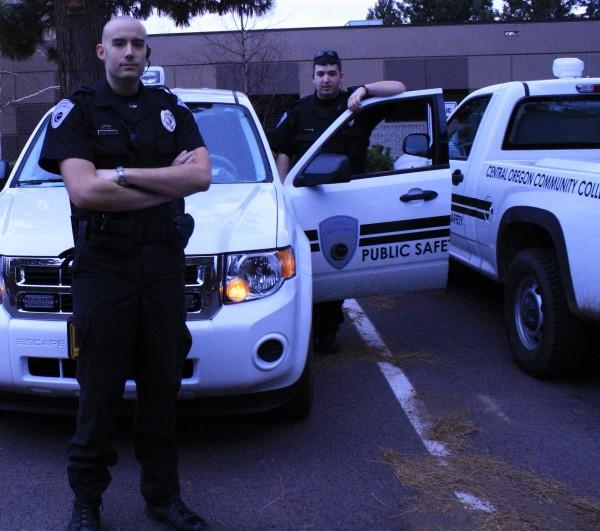In 2014, calls to Central Oregon Community College’s Campus Public Safety were up, but overall significant crime cases are at a four-year low.
CPS’s new philosophy of ‘community policing,’ which involves increased community involvement and reporting, officer proactivity and a greater focus on problem solving, led to a 46 percent increase in calls for service last year and a 133 percent compared to 2011, according to Jim Bennett, Assistant Director of Public Safety at COCC.
“Our goal has been to see calls for service increase – indicating greater proactivity and greater community involvement – and our cases, or incidents of significance, decrease,” said Bennett. “Both of these categories have moved in the right direction and created a safer campus.”
Compared to 2013, overall cases of significance that required a report in 2014 were down 6 percent, theft was down 56 percent and vandalism was down 31 percent.
The value of stolen property fell by 97 percent from 2013 when reported thefts, including large amounts from the bookstore, totaled $179,830 to just $5,835 in 2014.
Acute mental illness training also led to a 46 percent decrease in disturbance reports.
“Officers are now trained and certified as Crisis Intervention Officers, providing them with the skills to work with persons in AMI to prevent repetitive calls for service due to disturbances they are associate with,” said Bennett.
However, alcohol related incidents increased by 57% and narcotics related incidents increased by 43 percent, which Bennett attributes in part to “more proactive enforcement and reporting efforts.”
Traffic accidents were also up by 50 percent in 2014.
“Some traffic accidents are nearly unavoidable due to weather conditions, however a significant factor in reducing accidents is increased awareness, public safety visibility and enforcement,” said Bennett. “CPS has increased its traffic enforcement presence during the last few months and is seeing a positive improvement in the reduction of traffic accidents.”
“As we have tackled many of these issues, we must work hard to keep them at these levels, or below, as they can easily re-emerge if not managed or community involvement dips,” said Bennett. “We want to not only be known for driving crime down, but for driving trust and respect from our community up.”
Kelli Pangle | The Broadside
(Contact: [email protected])














